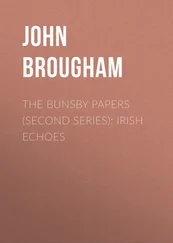George Foote - Flowers of Freethought (Second Series)
Здесь есть возможность читать онлайн «George Foote - Flowers of Freethought (Second Series)» — ознакомительный отрывок электронной книги совершенно бесплатно, а после прочтения отрывка купить полную версию. В некоторых случаях можно слушать аудио, скачать через торрент в формате fb2 и присутствует краткое содержание. Жанр: foreign_antique, foreign_prose, на английском языке. Описание произведения, (предисловие) а так же отзывы посетителей доступны на портале библиотеки ЛибКат.
- Название:Flowers of Freethought (Second Series)
- Автор:
- Жанр:
- Год:неизвестен
- ISBN:нет данных
- Рейтинг книги:5 / 5. Голосов: 1
-
Избранное:Добавить в избранное
- Отзывы:
-
Ваша оценка:
- 100
- 1
- 2
- 3
- 4
- 5
Flowers of Freethought (Second Series): краткое содержание, описание и аннотация
Предлагаем к чтению аннотацию, описание, краткое содержание или предисловие (зависит от того, что написал сам автор книги «Flowers of Freethought (Second Series)»). Если вы не нашли необходимую информацию о книге — напишите в комментариях, мы постараемся отыскать её.
Flowers of Freethought (Second Series) — читать онлайн ознакомительный отрывок
Ниже представлен текст книги, разбитый по страницам. Система сохранения места последней прочитанной страницы, позволяет с удобством читать онлайн бесплатно книгу «Flowers of Freethought (Second Series)», без необходимости каждый раз заново искать на чём Вы остановились. Поставьте закладку, и сможете в любой момент перейти на страницу, на которой закончили чтение.
Интервал:
Закладка:
Before dropping the pen, we take the opportunity of saying a few words on Madame Adam's article on Paul Bert in the Contemporary Review . She is an able woman, but not a philosopher, and she labors under the craze of thinking that she is a great force in European politics. She confesses that she hated Paul Bert, and she betrays that her aversion originated in pique and jealousy. We do not wish to be ungallant, but Gambetta had good reasons for preferring Paul Bert to Juliette Lambert, although the lady is ludicrously wrong in saying that "it was to Paul Bert that Gambetta owed all the formulae of his scientific politics." She forgets that Gambetta's speeches before Paul Bert became his friend are in print. She also ignores the fact that Gambetta was a stedfast Freethinker from his college days, and was never infected with that sentimental religiosity from which she assumes that Paul Bert perverted him. Certainly he was incapable of being moved by the hackneyed platitudes about science and religion that form the prelude of Madame Adam's article, and seem borrowed from one of M. Oaro's lectures. Nor did he need Paul Bert to tell him, after the terrible struggle of 1877, that Clericalism was the enemy. Still less, if that were possible, did he require Paul Bert or any other man to tell him that France imperatively needed education free from priestcraft. Madame Adam is so anxious to deal Paul Bert a stab in the dark that she confuses the most obvious facts. Gambetta and he fought against clericalism, and labored for secular education, because they were both Freethinkers as well as Republicans. In venting her spite, and reciting her own witticisms, she fails to see the force of her own admissions. This is what she writes of a very momentous occasion:
"I saw Gambetta at Saint Cloud the Sunday after the mishap at Obaronne. He had just been taking the chair at the Chateau d'Eau, at an anti-clerical meeting of Paul Bert's.
"He came in a little late to dinner. Some dozen of us were already assembled on a flight of steps at the bottom of the garden when he appeared. He spied me at once [a woman speaks!] across the green lawn and a vase of tall fuchsias, and called out in his sonorous voice:
"'Admirable! superb! extraordinary! Never since Voltaire has such an irrefutable indictment been brought against the clergy! And what a style! What consummate art!'
"'And what bad policy!' said a great banker who was with us, in a low voice, to me [note the me].
"Gambetta went on as he approached us:
"'And such an immense success – beyond anything that could be imagined! Ten thousand enthusiastic cheers!'
"'The ten thousand and first would not have come from me,' I said [said I], as we greeted one another.
"'You yourself,' cried Gambetta, 'you yourself, I tell you, would have been carried away; if not by the ideas, by the genius lavished in propounding them.'"
Yes, and notwithstanding Madame Adam's "religion" and the great banker's "policy," Gambetta and Paul Bert were in the right, and miles above their heads.
Following Madame Adam's lively nonsense, the Echo says that Paul Bert tried to set up another Inquisition. "In France," says this organ of Christian Radicalism, "they strive to prevent a parent from giving his child a religious education." They do nothing of the kind. They simply insist that the religious education shall not be given in the national school. Every French parent is free to give religious instruction to his children at home, and there are still thousands of State priests who can supply his deficiencies in that respect. Meanwhile national education progresses in good earnest. The Empire left nearly half the population unable to write their names. Now the Republic educates every boy and girl, and Mr. Matthew Arnold assures us that the French schools are among the best in Europe, while the sale of good books is prodigious. Gambetta and Paul Bert worked, fought, and sacrificed for this, and they cannot be robbed of the glory.
BRADLAUGH'S GHOST
Directly after Charles Bradlaugh's death we expressed a belief that the Christians would concoct stories about him as soon as it was safe to do so. It took some time to concoct and circulate the pious narratives of the deathbeds of Voltaire and Thomas Paine, and a proper interval is necessary in the case of the great Iconoclast. Already, however, the more superstitious and fanatical Christians are shaking their heads and muttering that "Bradlaugh must have said something when he was dying, only they wouldn't allow believers in his sick room to hear it." By and bye the more cunning and unscrupulous will come to the aid of their weaker brethren, and a circumstantial story will be circulated in Sunday-schools and Christian meetings.
We are well aware that his daughter took every precaution. She has the signed testimony of the nurses, that her father never spoke on the subject of religion during his last illness. But this may not avail, for similar precautions are admitted to have been taken in the cases of Voltaire and Paine, and, in despite of this, the Christian traducers have forged the testimony of imaginary interlopers, whose word cannot be disproved, as they never existed outside the creative fancy of these liars for the glory of God.
It is quite a superstition that truth is always a match for falsehood. George Eliot remarked that the human mind takes absurdity as asses chew thistles. We add that it swallows falsehood as a cat laps milk. It was humorously said the other day by Colonel Ingersoll that "The truth is the weakest thing in the world. It always comes into the arena naked, and there it meets a healthy young lie in complete armor, and the result is that the truth gets licked. One good, solid lie will knock out a hundred truths." It has done so with respect to the death of Voltaire and Paine, and it will do so with respect to the death of Charles Bradlaugh.
Meanwhile the Spiritualists are having an innings. Charles Bradlaugh was buried by his friends at Woking, but his ghost is said to have turned up at Birmingham. It appears from a report in the Medium and Daybreak that Mr. Charles Gray, of 139 Pershore-road, being "sadly sorrow-stricken by the passing away of a son," was "constrained to remain at home" on the evening of May 31. A seance was arranged "with a few friends," and of course a message was received from the dear departed boy. This was conveyed through Mr. Russell, junior, whose age is not stated. Then Mr. Reedman "was controlled to write by C. Bradlaugh." Mr. Reedman wrote "in a perfectly unconscious state, and on the departure of the influence was much surprised on being told of the nature of the communication."
Mr. Reedman's surprise may have been great, but it scarcely equals our own. One would imagine that if Charles Bradlaugh still lived, and were able to communicate with people in this world, he would speak to his beloved daughter, and to the friends who loved him with a deathless affection. Why should he go all the way to Birmingham instead of doing his first business in London? Why should he turn up at the house of Mr. Gray? Why should he control the obscure Mr. Reedman? This behavior is absolutely foreign to the character of Charles Bradlaugh. It was not one of his weaknesses to beat about the bush. He went straight to his mark, and found a way or made one, Death seems to change a man, if we may believe the Spiritualists; but if it has altered Charles Bradlaugh's character, it has effected a still more startling change in his intellect and expression.
Here is a "correct copy" of Charles Bradlaugh's message to mankind, and most of our readers will regard it as a very Brummagen communication: —
"As I am not to speak (so says the 'Warrior Chief'), I am to say in writing, I have found a life beyond the grave that I did not wish for nor believe in; but it is even so. My voice shall yet declare it. I have to undo all, or nearly all, I have done, but I will not complain. My mind is subdued, but I will be a man. It is a most glorious truth that has now more clearly dawned upon my mind, that there is a grand and noble purpose before all men, worth living for! May this be the dawn of a new and glorious era of the spiritual life of your humble friend Charles Bradlaugh!
Читать дальшеИнтервал:
Закладка:
Похожие книги на «Flowers of Freethought (Second Series)»
Представляем Вашему вниманию похожие книги на «Flowers of Freethought (Second Series)» списком для выбора. Мы отобрали схожую по названию и смыслу литературу в надежде предоставить читателям больше вариантов отыскать новые, интересные, ещё непрочитанные произведения.
Обсуждение, отзывы о книге «Flowers of Freethought (Second Series)» и просто собственные мнения читателей. Оставьте ваши комментарии, напишите, что Вы думаете о произведении, его смысле или главных героях. Укажите что конкретно понравилось, а что нет, и почему Вы так считаете.












